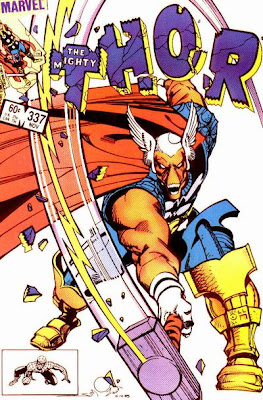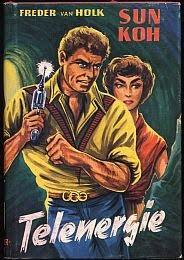
Leigh Brackett's original script for "The Empire Strikes Back" is something I've sought after in a lifetime of being a Star Wars fan. This wasn't just another movie, it was the high point of the entire franchise. What secrets did the script contain?
Recently, I read it and I got a chance to find out. It was not what I was expecting at all.
Who is Leigh Brackett?
Leigh Brackett was all of seventy years old when she wrote the original script for the Star Wars Sequel (the name hadn't even been picked up), and one of the many people from Hollywood's Golden Age who was tapped in the 1970s when blockbuster, mass market pictures came back into vogue, just like "Exorcist" director William Friedkin was a student of Howard Hawks.
Brackett wrote the scripts for arguably the greatest Western and film noirs of all time: Rio Bravo and the Big Sleep.
Brackett is one of those authors, like Hemingway, that's bigger than the stories they wrote. She always "power-dressed," long before that expression came into vogue, loved driving her red sportscar way too fast on California curves. There was a famous story were Leigh played volleyball with the boys in Muscle Beach, California and held her own.

It was especially shocking to read Leigh Brackett and discover she wrote (anti-) heroes in a voice shockingly similar to Star Wars's scene-stealing, coolest character, Han Solo. One particular antihero character, Rick in "Nemesis from Terra," had a moment so "Han Solo" it was a little chilling, especially when you imagine it was written in 1944.
While on the run in a cave network under Mars with his lady friend, he reached in the darkness and grabbed her.
"Which wrist did I grab?"
"Left."
"We go left. And baby, we'd better hope you're lucky!"
Since the prequels came out, I had another reason to want to read the Leigh Brackett script for "Empire Strikes Back." With the prequels, it was absolutely inarguable that George Lucas had absolute creative control. And those lousy movies were the result? A lot of fans started to wonder if maybe George's role in the success of the original movies was a little overrated. If Star Wars wasn't great because of his contributions, then who else was it? Laurence Kasdan? "Empire Strikes Back" director Irving Kirschner? Producer Gary Kurtz?
It's become a common argument among fans that Leigh Brackett, not George Lucas or screenwriter Laurence Kasdan, was responsible for the strong story of "The Empire Strikes Back." In an interview in Starlog around 1980, George Lucas claimed that it was Leigh Brackett's idea that Darth Vader was Luke Skywalker's father. Ever since Brackett's death in 1978, Lucas has given her a gradually smaller and smaller role in the history of Star Wars; currently Lucasfilm claims that Brackett's script was rejected in its entirety as unsuitable, and George Lucas only kept her name on the script credit as a favor to her widower husband, "Planet Smasher" Ed Hamilton. That's a pretty interesting claim considering that the screen writers' guild rules determines when a writer gets credit!
The Structure
First things first: the basic structure of the Brackett script is ultimately identical to the finished film. The differences are in the details.
All the beats of the final film are there: Luke is captured on an ice planet, the Rebels have to evacuate because of upcoming Imperial attack (although in this script the Rebels can't buy a break and get a double-whammy of Imperial troops and unstoppable, unfriendly ice monsters as well), and there's an escape into asteroids, Han and the Princess fall in love, and Luke goes to train as a Jedi Knight under some mysterious weirdo. All roads lead to Cloud City, where Darth Vader has captured Han and Leia due to Lando selling them out, and ultimately the climax is a lightsaber duel between Luke and Darth Vader where Luke is tempted by evil.
Yoda is there (named "Minch," a froglike old bog planet dweller that trained Obi-Wan), as is the Emperor…here he's his usual self as a hood wearing old sorcerer. Apparently this was the point where the idea the Emperor was a powerless figurehead pawn of a powerful military junta, present in the original Star Wars novelization among other pre "Empire Strikes Back" places, was ditched.
One of my favorite scenes shows something I was always curious about: Darth Vader's castle. Darth Vader has some gargoyle-like pets that he feeds, delighting in their greed and cruelty.
Lando
The most surprising element of the script had to do with Lando, here called Lando Kadar. As opposed to a charming but untrustworthy rake who tried to go legit and became successful, Lando in Leigh Brackett's script is a man who "went native," like Jake Sully in "Avatar," accepted by and becoming a leader of a tribe of primitives who live on the Cloud world and fly aerial manta rays.
A lot of people believe Lando was created for a very cynical reason: a big criticism of the original Star Wars was there weren't any black people in it. But there's not a single word about Lando's race in the script. The description of Lando Kadar is that he was so good looking, like Rudolph Valentino, he seems almost a little unreal.
Originally we hear that Lando Kadar was some kind of refugee from the Clone Wars. That's when the bombshell is dropped: Lando Kadar was a clone, from a planet of clones.
Han Solo, Dialed Back
One of the more disappointing things about the script is that Han Solo in this movie is a seriously subdued, "big brother" figure that seems very bland, without his trademark pride, gambler's arrogance, coolness and desire for independence. Han Solo is strongly on the Rebels' side, and isn't conflicted about it at all. Some of his character defining moments, like running the blockade of Imperial ships, leading them into an asteroid field and so on, are absent. This was one of the biggest surprises because practically every single hero Leigh Brackett ever wrote was basically Han Solo. Obviously I wouldn't expect a first draft to be perfect, and a few more rewrites were needed.
Han got a really interesting piece of business: we learn his estranged stepfather was a wealthy interstellar shipping magnate that might be the most powerful person in the galaxy after the Emperor and Darth Vader, and the Rebels need his help. This mission is set up at the end, where Han leaves in the Falcon. I always thought this was interesting because what little we've heard about Han's stepfather reminds me of the Fu Manchu-esque Prince Xizor in "Shadows of the Empire," who was also a shipping magnate and was also the third most powerful and influential guy in the galaxy.
There is one important character that isn't mentioned at all: Boba Fett, and there was no dark cliffhanger with Han Solo trapped in chocolate. Considering the original version of the Star Wars script had Darth Vader as an evil, quiet and menacing bounty hunter, I'm inclined to think this might have been Lucas's idea.
Luke Skywalker is "Rocky"
It's hard to imagine how a boy pilot who blew up the Death Star could possibly be an underdog again after proving himself in such an amazing way, but the Brackett story knocks Luke down a peg in the beginning to build him up. By the end of the story he's humbled, more aware of his shortcomings, but also more adult and wise.
The story starts with Luke getting his ass kicked by ice monsters, just like in the final film. And it goes downhill from there – he tells Leia he loves her and she rejects him, because of her duties (leaving him to think "she's a princess and I'm a farm boy from Tattooine"). And then, in a very subtle way, she leaves Luke to "help out" (ha, ha) Han Solo…
One of my favorite parts of the original Brackett script was how Luke drew his lightsaber to fight an ice monster and got his ass kicked.
Han Solo then tells Luke that Ben Kenobi was a good guy but he filled Luke's head with nonsense, and even for the Jedi Knights, lightsabers were entirely ceremonial weapons and are not the most practical in real fights. This is really funny to me, because I always found the idea that someone with a sword was invincible against people with guns was just a little unbelievable, and come the prequels, the lightsaber was so overused and overpowered it became boring. To have someone at this early stage flat out say they're romantic and sentimental but not a very practical weapon, well, it rings absolutely true.
Therefore, when Luke starts training on the unnamed bog planet, when the ghost of Ben Kenobi tells him he has potential and greatness, Luke was a little suspicious of him. "I'm nobody," he says.
Leigh Brackett's Star Wars sequel script had an infinitely more complex and intriguing view of the Force than the later films. When Luke asks what the Dark Side of the Force is, Yoda tells them the Dark Side isn't something external, but your own personal Dark Side and worst characteristics, insecurities, wrath, hatred and vices. Giving in to these traits is destroying yourself.
Was Darth Vader Luke Skywalker's Father?
Short answer: no, not in this script.
If Luke being Darth Vader's son was Brackett's idea, it wasn't here. And it isn't just a question of that line not being there. In one scene on the bog planet, Obi-Wan introduces Luke to the ghost of his real dead father. The moment is as earth-shattering for Luke as it is for us.
Amazingly of all, Luke's Father tells him he has a sister, who in the script was given the name "Nellith."
During the final confrontation, hoping to unleash Luke's evil side, Vader taunts him with the knowledge that he killed his father.
"You don't stand a chance against me. …No more than your Father did, anyway."
Vader plays to Luke's vanity as well as his rage and wrath, hoping to get Luke to use the Dark Side so Luke could say he killed the great Darth Vader. In the end Luke gives in to wrath and rage, and as a result, he betrays his Jedi oath, a crushing moment where Luke believes he ought to die.
All in all, Darth Vader's temptation of Luke was much better done in this script because he had something to tempt Luke with.





















































